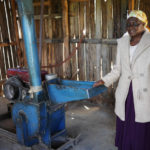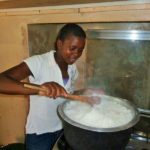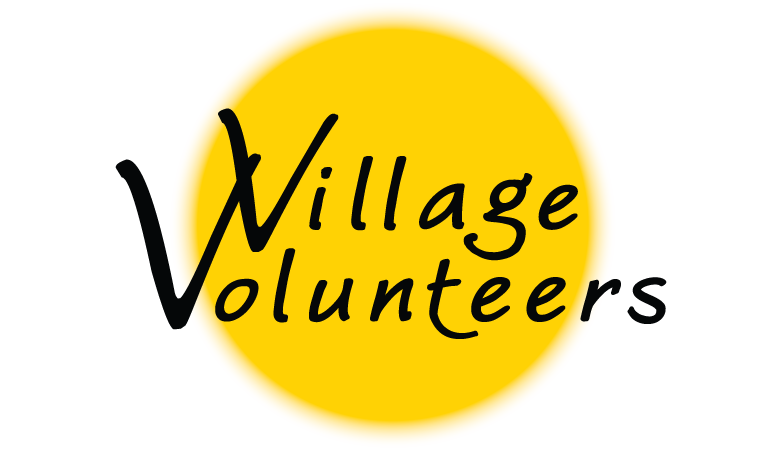Graining Mills: the Khalwenge Posho Milling Project helps a local village produce their own food, by Regina Williams, Journalist Intern from Seattle University.
The Posho Mill project in Endebess Sub County was funded through WASSA Dance, an annual Thanks-givi ng Dance by Donation held in Seattle, Washington. The mill project serves a village in Kenya near the border of Uganda with a population of 1,000 households. Now the community has a new business in town where the focus is on grinding maize, a staple for locals set up by the able Joshua Machinga of Common Ground for Africa. Twenty-seven women of the Tasamana Women’s Group run and operate the mill. For many locals in Kenya, maize is the single most important staple to their diets. It accounts for 40 percent of both rural and urban locals’ calorie diets. This crop has become according to business experts, an increasingly prevalent investment opportunity for anyone to venture through value addition (if the crop is milled into flour).
ng Dance by Donation held in Seattle, Washington. The mill project serves a village in Kenya near the border of Uganda with a population of 1,000 households. Now the community has a new business in town where the focus is on grinding maize, a staple for locals set up by the able Joshua Machinga of Common Ground for Africa. Twenty-seven women of the Tasamana Women’s Group run and operate the mill. For many locals in Kenya, maize is the single most important staple to their diets. It accounts for 40 percent of both rural and urban locals’ calorie diets. This crop has become according to business experts, an increasingly prevalent investment opportunity for anyone to venture through value addition (if the crop is milled into flour).
The Group Leader, Imelda Naliaka, notes maize milling to be one those ventures that require a startup capital. Thanks to WASSA Dance, the group bought a small locally fabricated milling machine from Kitale. This machine mills about 660-1760 pounds a day.
Maize: the single most important crop in Kenya
Maize a staple in Kenya can be found in every part of the country and a direct source of nutrition for more than two million households, more than a 1,000 traders and a dozen millers. Over time maize has become the largest non-traditional export cash crop that particularly benefits smallholder farms.
Generally, one should only operate the mill if the raw material is in the locality. Mrs. Imelda states that maize milled into flour is in high demand by all -schools, hospitals, the army, and police because it’s a staple food.
With such high demand for maize Mrs. Imelda shares, “If you position your business within these localities be assured of a ready market.” As money comes in, they are hoping to open more branches as money comes in.
Some exciting impacts of the project
Mrs. Imelda states “From the money we raised; we have been able to purchase a second-hand generator which ensures operation especially when regular energy supply is disrupted.”
Out of the project came three surprising but wonderful results:
- The group recently started a small buying and selling center that focuses on grains and flour.
- An opportunity for a chicken project. The group has collected enough poultry feed from the Posho mills (these feeds include wastes from the sieve, grains that fall on the ground and flour that remains in the machine/prongs at the end of the day).
Insights/Lessons learned from the Posho Mills Project
- It is possible to open and start a small-scale flour mill and make large sums of money.
- With a small mill, one should not be over-pressed to mill beyond capacity if they want them to in business for a while. To ensure maximum profit, one should position the miller in a place that has electricity or purchase a generator (see pictures below).
- The milling project can lead to other equally important projects such as poultry rearing or poultry manufacturing and marketing.
About WASSA DANCE: A lively, accessible mix of traditional and contemporary poly-rhythmic styles with classes and retreats year round. With Lara’s unique understanding of Afro-fusion sounds, basic steps and choreography are designed to inspire. The simplicity of the format invites each dancer to cultivate their own joyful, personal experience inside roots-oriented group movement with mixed levels. The Dance by Donation has funded projects each year on Thanksgiving Morning to share in our good fortune on a day to give thanks. For more information on WASSA, Contact: Lara McIntosh – WASSA DANCE through http://wassadance.com/
